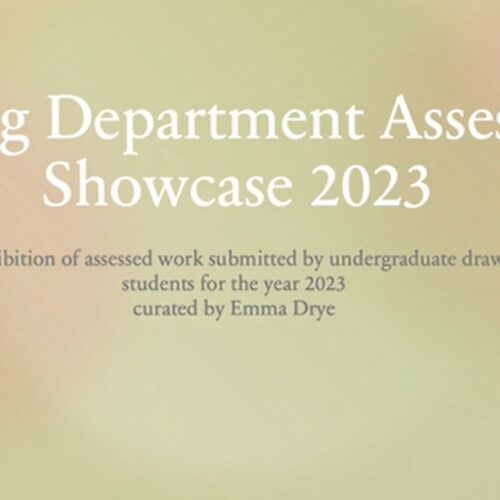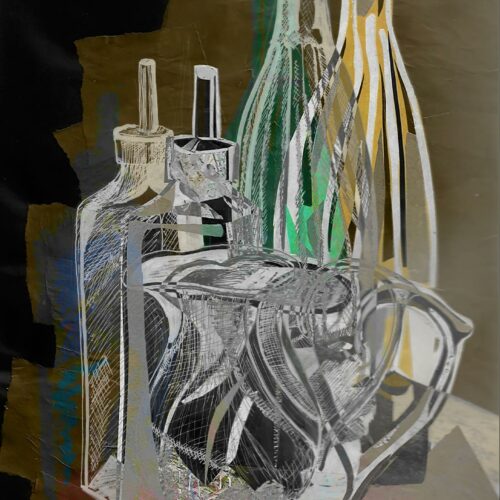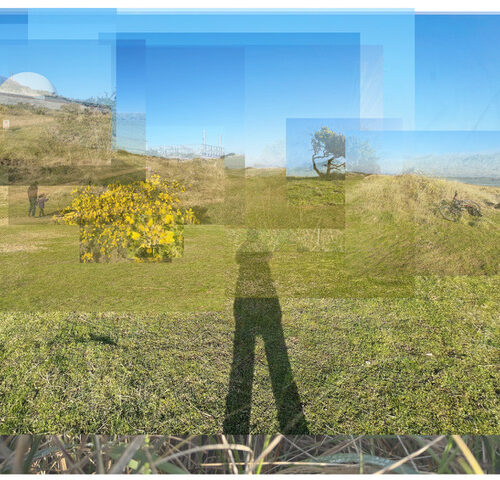
In conversation with: Martin Evans

Martin, congratulations on being a finalist in the Radio 3
Breakfast Carol Competition 2017! Firstly, could you tell me about
your piece? Where did the text come from, and how did you approach
setting it?
Thank you, Ben. So, the BBC selected the words of Sir Christèmas, a 15th century Christmas-themed text by an unknown author, inviting composers to use these for creating a new carol for SATB choir either with or without piano accompaniment.
Having attempted just once before to compose for a choir, I wasn’t sure if I would have the confidence or ability to write something with musical integrity, let alone something which would stand up technically to a distinguished judging panel and a professional choir. However, rather than giving up to feelings of self-doubt, I decided to at least read through the text, listening to it rhythmically, whilst also trying to feel what the words were conveying to me. Writing them out by hand was key to this process, as it helped me to personally engage with them.
With the words floating around my mind and staring back at me from the A4 sheet on which I’d written them, I soon became aware of a potential structure for the piece. This structure became clearer after playing around with a couple of ideas at the piano, one for a potential verse and the other for a chorus. Personally, I love music which takes me on a journey around effusive harmonies, so writing with this in mind and creating a more reflective sound overall, was completely natural and right for me and my interpretation of these words.
So, with the basics in place, structurally and harmonically, the real work of refining the parts then began. I wanted to create a sound in which the words and phrases sometimes overlap, emphasising some more than others, but always complementing one another musically and rhythmically, to help in creating interest and texture. I also felt the need to write a musically appealing piano accompaniment to fully complement and caress the vocal lines throughout. The hardest thing for me was knowing when to stop the tweaking and refining, but I eventually reached a point where it finally felt done which, in itself, was a good learning experience for me.
What was the recording session like? Did you enjoy working with the
BBC Singers?
Having never experienced hearing anyone else perform one of my compositions, let alone a professional choir like the BBS Singers, this day was a big deal for me, knowing I would hear it come to life for the first time. Plus, being invited to the BBC Maida Vale studios for this experience made it even more special, if not slightly daunting too! Hearing the singers’ express the words for the first time, alongside their natural, musical expression, was very moving for me, a truly magical experience which elevated the piece to a level beyond that which I could have hoped for. Also, I have to say the pianist Richard Pearce exquisitely expressed the piano part which, for me, perfectly complemented the overall sound of the choir.
David Hill, the conductor, and the BBC Singers had already run through the carol before my arrival and as my score was full of details, hardly any changes were needed, querying only a couple of things as the overall feel of the piece was very much in place. I noticed that the singers seemed to very much enjoy singing it, which was a real bonus as I always aim to compose pieces which people will enjoy performing. The recording session afterwards was quick, with a couple of run throughs and a few additional takes of various sections of the piece, to ensure enough recorded material was available from which to edit a final mix. It was a truly memorable day which will stay with me forever!
What does being a finalist mean to you?
It has given me the confidence to believe in my work and my ability as a composer, justifying the efforts I made in the writing, developing and refining this score. Also, as mentioned above, it fulfilled my dream of hearing one of my compositions performed live, by other musicians.
Furthermore, it has inadvertently sweetened the decision I made, 12 months ago, to enrol on the OCA’s ‘Music 1 – Composing Music’ course which I am just about to complete. For me, the course’s well-structured approach to study has helped me to focus on and refine my own compositional skills, which ultimately gave me the confidence to have a go at entering my score for this competition. I am very much looking forward to more compositional study/research and to continued growth in my confidence and development as a composer.
I understand this is not the only success you’ve had this year as a
composer; you performed at St John’s Smith Square. What was the event?
St. John’s Smith Square is one of my favourite concert venues, its beautiful baroque architecture and spiritual past, as a former church, lending itself perfectly as a setting in which to appreciate music as both performer and listener. In August last year I saw that they were participating in the Open House London 2017 which gives free access for the public to some of London’s best buildings during one weekend each year. To celebrate this, SJSS invited musicians of all kinds, to apply to perform at the venue as part of a 12-hour music marathon whilst Open House visitors would be able to come a go at their leisure. As a pianist and composer of a handful of solo piano works, I thought it would be the ideal opportunity to pluck up the courage to apply by listing a programme of these pieces for consideration on the application form. To my utter delight, my application was accepted with SJSS offering me a 30-minute slot (12.30pm on Saturday 16th September 2017) in which to perform them. Having not performed in such a formal public setting for many years, it was a nerve racking experience for me, but also a very cathartic one, as the post-concert feedback I received from friends, as well as strangers who had not previously heard them, fully reassured me in my belief for these pieces.
Both the SJSS and the more recent BBC competition experiences have made me realise that sharing one’s own compositions with the public in any kind of performance situation, can be extremely rewarding. Learnings from such experiences are invaluable for continued growth and development as a musician and composer, which I have only just started to understand and appreciate. Bring on the next experience, whatever that may be!
Click here to listen to Martin’s piece.






Congratulations, Martin – great piece!
Excellent Martin, that’s a great sounding piece!
Thank you Chris! The BBC Singers did a lovely job of bringing it to life – I still can’t quite believe it; it was such a wonderful experience.